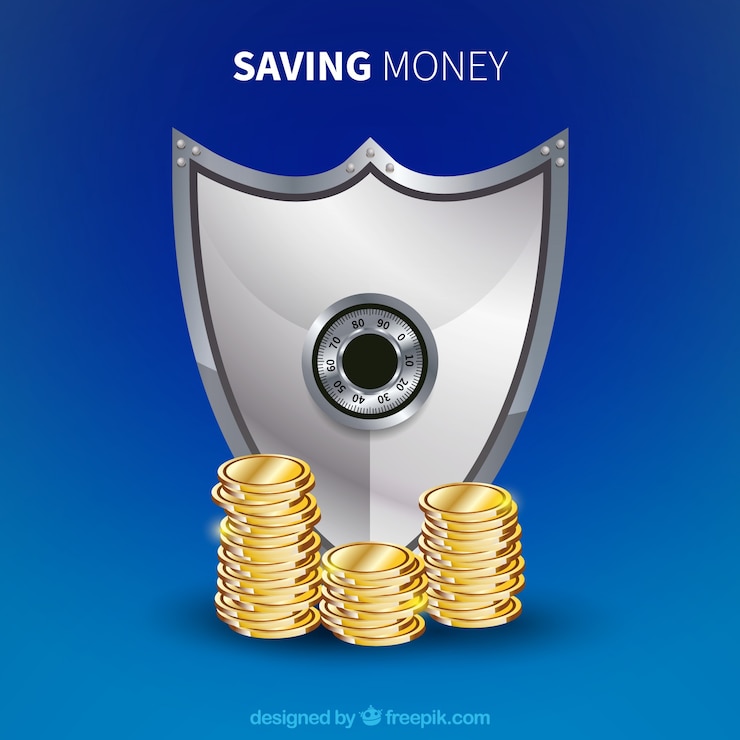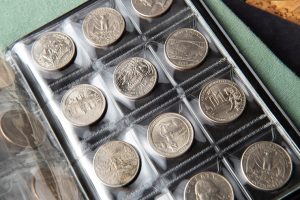
Hey everyone! I’ve got another guest post to share with you, this time with CoinAdvisor.com, on how to keep your coins safe. We’ll be returning to regular blogging soon—it’s just been a hectic time getting some other projects wrapped up. Sorry about that! I’m still collecting coins in my spare time, but I haven’t had much opportunity to write about them lately. Hope your collections are thriving!
Coins are incredibly sensitive to moisture. Even the tiniest saliva droplets from nearby conversations can leave spots that may be impossible to remove. To protect them, it’s best to always store your coins in some sort of enclosure like a coin album, flip, or “slab.”
Though your coins might appear sturdy, they’re actually more fragile than you might expect. Dirt, grime, and oils from your fingers can significantly impact their condition. In the worst case, handling them directly can lead to scratches, smearing, and discoloration—which can result in a considerable decrease in monetary value.
If you absolutely need to handle your collection, make sure you have cotton or latex gloves to reduce the risk of damage. To avoid smearing, always hold the coins by their edges, even when wearing gloves.
Interestingly, cleaning your coins isn’t advisable. Polishing them can cause microscopic damage that accumulates over time, leading to a drop in value. New collectors often notice their coins changing color and feel the urge to clean them. However, this color or “tone” is normal and results from natural oxidation. Attempting to remove this can damage the coin and ruin its natural shine, decreasing its worth. Many collectors actually appreciate this toning, which can increase a coin’s value.
If you own special mint coins, never take them out of their holders. The best storage for these is coin slabs, and they shouldn’t be removed for any reason. When buying mint coins, always keep the accompanying papers, as they’ll be essential for verifying the coin’s value later.
The chemicals in paper coin holders can sometimes spread to the coins, causing discoloration or staining. Always check if the paper holder is marked “acid-free” by the manufacturer. If it’s not, it’s best to avoid it.
Similarly, some types of plastics, mainly PVC, can damage coins. If you’re using plastic for storage, ensure it’s designed specifically for coins. Be careful with materials that could lead to a green film on your coins, which you definitely don’t want.
The best storage options include slabs, albums, cabinets, and cases, all designed with the needs of coin collectors in mind. Keep these containers in a dry, temperature-controlled environment to minimize moisture and slow down oxidation. For maximum protection, consider storing your coins in a safety deposit box to safeguard them against theft or other misfortunes.
Coin collecting is a timeless hobby enjoyed by many. Today, it’s an exciting treasure hunt for rare and valuable coins. Whether you see it as an investment or a pastime, the main goal for us collectors is simple: We love it! So keep on collecting and savor the experience!
*****
Tyler Fleck is a blogger and editor for CoinAdvisor.com, a site dedicated to sharing knowledge about coin collecting and offering new silver and gold coins for your collection.







